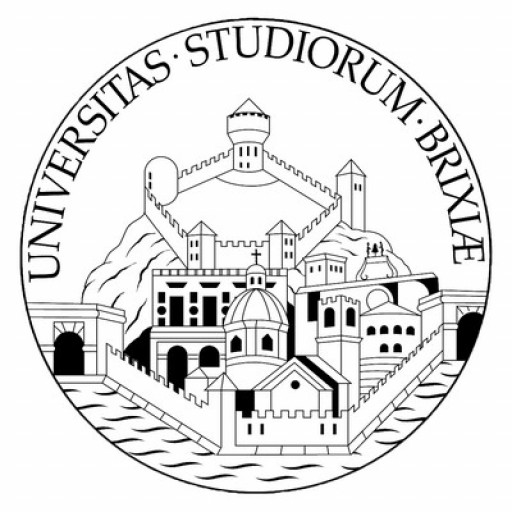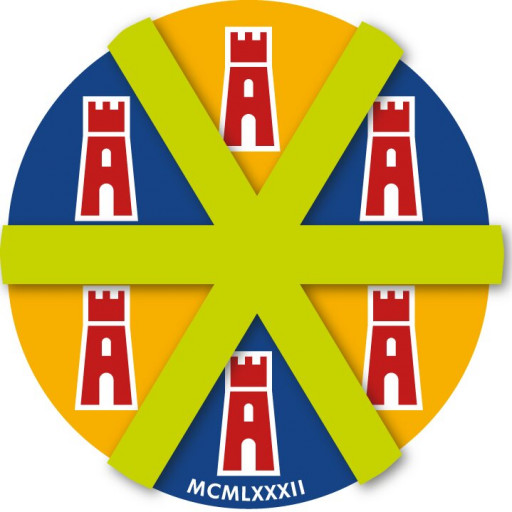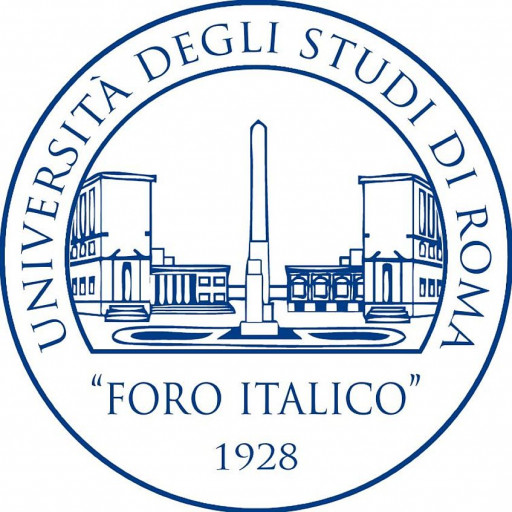Photos of university / #_londonu
Lifecycle and health management of livestock are critical components of sustainable agricultural practices and food production systems worldwide. The Livestock Health and Production programme at the University of London offers an in-depth understanding of the biological, ecological, and economic factors influencing the health and productivity of farm animals. This comprehensive course is designed to equip students with the theoretical knowledge and practical skills necessary for effective livestock management, disease prevention, and sustainable production.
Drawing on a multidisciplinary approach, the programme covers topics such as animal anatomy and physiology, nutrition, reproduction, genetics, and animal welfare. Students will explore various infectious and non-infectious diseases affecting livestock, learn diagnostic methods, and develop strategies for disease prevention and control. Emphasis is placed on the importance of sustainable practices, ethical considerations, and the role of technology in modern livestock health management.
The curriculum integrates theoretical coursework with practical dissections, laboratory work, and field studies to ensure that students gain hands-on experience. Students will analyze case studies from diverse livestock systems, including cattle, sheep, goats, pigs, and poultry, to understand the challenges faced by farmers and veterinary professionals. Additionally, the programme examines the economic aspects of livestock health, including cost-effective disease management and the implications of health issues on farm productivity and market access.
Graduates of the Livestock Health and Production programme will be well-prepared for careers in veterinary medicine, livestock consultancy, farm management, research, and policy development. They will possess the skills to assess livestock health issues critically, recommend appropriate interventions, and promote sustainable farming practices that ensure animal welfare and economic viability.
This programme also encourages international perspectives and integrates global best practices, making it highly relevant in a world facing increasing demands for efficient and ethical livestock production. With a curriculum developed by leading academics and industry experts, students will become competent professionals capable of addressing current and future challenges in livestock health and production. Whether your goal is to work directly with farm animals, contribute to scientific research, or influence agricultural policy, this programme provides a solid foundation for a rewarding career dedicated to improving livestock health and ensuring food security worldwide.
The Livestock Health and Production programme offered by the University of London is an comprehensive course designed to equip students with in-depth knowledge and practical skills related to the health, management, and production of livestock. This programme covers a wide range of topics essential for understanding the biological, environmental, and economic factors influencing livestock health and productivity. Students will explore the anatomy and physiology of different farm animals, disease prevention and control, nutrition, breeding, and welfare practices, as well as sustainable livestock management systems.
Throughout the programme, learners will examine the epidemiology of animal diseases, diagnostic techniques, and strategies for disease surveillance and eradication. The curriculum also emphasizes the importance of sustainable practices in livestock production, including environmental impacts, biosecurity measures, and farm management systems that optimize productivity while ensuring animal welfare. Students will gain practical experience through case studies, virtual simulations, and research projects, preparing them for real-world challenges faced by veterinarians, farm managers, and animal health specialists.
The course combines theoretical instruction with applied learning, enabling students to analyze complex issues in livestock health and develop innovative solutions. It addresses current challenges in the industry such as antimicrobial resistance, zoonotic diseases, and climate change impacts on agriculture. Graduates will be well-equipped to pursue careers in veterinary services, livestock consultancy, research, and policy-making, contributing to the improvement of animal health standards and sustainable agriculture practices globally. The Livestock Health and Production programme is suitable for individuals seeking to deepen their understanding of livestock management and enhance their professional expertise in animal health sciences.
Program requirements for the Livestock Health and Production MSc at the University of London typically include a combination of academic qualifications, language proficiency, and specific prerequisites. Applicants are generally expected to hold a good undergraduate degree in a relevant subject such as veterinary medicine, animal science, biology, or a related field from an accredited institution. In some cases, significant professional experience in livestock health, animal production, or related areas may be considered in lieu of formal academic qualifications.
Proficiency in English is mandatory, with applicants required to demonstrate their language ability through standardized tests such as IELTS or TOEFL if their prior education was not conducted in English. A minimum IELTS score of 6.5 overall, with at least 6.0 in each component, or an equivalent score in TOEFL, is typically required to ensure candidates can effectively engage with the course materials and participate in assessments.
Applicants are often asked to submit a personal statement explaining their motivation for pursuing the MSc, their relevant experience, and how the program aligns with their career aspirations. Letters of recommendation may also be required, usually from academic referees or professional supervisors who can attest to the applicant’s suitability for the program.
Additionally, some programs may require a curriculum vitae (CV) detailing the applicant’s educational background, research experience, and employment history. The selection process evaluates the applicant’s academic record, relevant experience, and potential contributions to the course.
International students are advised to review specific entry requirements related to visa regulations and accreditation standards. The program may also stipulate specific prerequisites in livestock health, microbiology, or veterinary sciences for applicants who did not major directly in these fields at undergraduate level.
Applicants should also be prepared to demonstrate a commitment to advancing knowledge in livestock health, which could include prior research, publications, or professional projects. In some cases, a face-to-face interview or online assessment may be part of the evaluation process.
Enrolling in the program requires meeting all admissions criteria and successfully completing the application process through the university’s admissions portal. Prospective students are advised to submit their applications well in advance of deadlines to ensure sufficient time for processing and any necessary follow-up or interviews. The program aims to admit students who show strong academic potential and motivation to make meaningful contributions to livestock health and production sectors worldwide.
The Livestock Health and Production program offered by the University of London provides various financing options to support students throughout their studies. Tuition fees for this program vary depending on the student's residency status and the specific modules chosen. Typically, the program offers competitive fee structures aligned with other online and distance learning courses provided by the University of London. Students are encouraged to explore tuition fee details on the official university website to obtain the most current information.
Financial assistance is available through multiple channels. The University of London offers scholarships and bursaries aimed at supporting students from diverse backgrounds, including those pursuing degrees in agricultural and veterinary sciences. Applicants are advised to check eligibility criteria and application deadlines carefully. Additionally, many students utilize student loans, which can be arranged through government-backed loan schemes or private lenders, depending on the student’s country of residence. These loan options often feature flexible repayment plans tailored to recent graduates’ income levels.
Part-time study options enable students to work while studying, providing an additional means to finance their education. Some students also seek external sponsorships or employer funding, especially if their employment involves related fields such as agriculture or veterinary practice. The program's online format allows students to balance their studies with employment, making it easier to manage finances without relocating.
Furthermore, the University of London collaborates with various organizations and industry partners to facilitate internship opportunities and funded research projects, which may include financial support. Students engaging in research or additional projects often have access to grants or stipends designed to offset living expenses and study costs.
For international students, visa regulations in their home countries or the UK may influence available financing options, including eligibility for certain scholarships or loans. The university provides comprehensive guidance and support services to help students navigate their financial planning and application processes.
In summary, students enrolled in the Livestock Health and Production program can access a variety of financing options, including scholarships, bursaries, loans, work opportunities, and sponsorship programs. The university's commitment to accessible education ensures that financial barriers are minimized, allowing students from diverse backgrounds to pursue their academic and professional goals in livestock health and production.
The Livestock Health and Production programme offered by the University of London provides students with comprehensive knowledge and practical skills essential for advancing careers in livestock management, veterinary health, and animal production systems. This programme covers a wide range of topics including animal nutrition, disease control, breeding, welfare, and sustainable production practices. It aims to equip students with an understanding of the biological and environmental factors affecting livestock health and productivity, as well as the application of scientific principles to improve animal performance while ensuring ethical and sustainable practices. The curriculum typically combines theoretical coursework with practical applications, often involving laboratory work, farm visits, and case studies to enhance real-world understanding.
Designed for professionals in the agricultural sector, policymakers, and researchers, the programme emphasizes evidence-based approaches to solving complex issues related to animal health and production systems. It also explores zoonotic diseases, epidemiology, and the role of livestock in global food security, which is increasingly relevant given current trends in climate change and resource management. Students gain skills in disease diagnosis, management strategies, and the implementation of effective health programs tailored to different livestock environments.
The programme is delivered through distance learning, enabling students worldwide to access high-quality education without relocating. This flexible mode of study allows participants to balance their professional and personal commitments while gaining critical expertise. The University of London provides extensive academic resources, including online libraries, tutorials, and support from experienced faculty members. Graduates of this programme are well-prepared to pursue careers in veterinary services, research institutions, government agencies, or agricultural consultancy, contributing to improved livestock health and sustainable production practices globally. Overall, the Livestock Health and Production programme combines scientific study with practical application, equipping students to make significant contributions to the livestock sector and ensure healthier, more productive animals across diverse settings.









